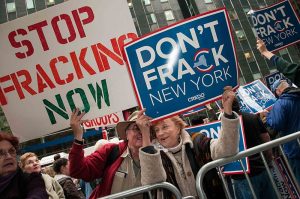Don’t Fall for Greenwashing This Earth Day
Be green, just not the naïve kind of green, and pay attention to companies’ Earth Day efforts
This Earth Day, remember to be mindful of companies that are greenwashing, meaning that they change the narrative around environmental health for their own self-image.
April 22, 2021
We’ve seen them before — the tweets from oil companies asking us how we might personally help to reduce emissions or ads from car companies donating money to national parks. Both are an example of greenwashing, when companies change the narrative around environmental health to promote a better self-image.
Don’t be fooled by the subversion; companies have long shifted blame onto the individual, making us feel like we’re personally responsible for reducing climate change. Buying a car that contributes to a good cause or buying a carton of chips with a sustainable look may feel good, but that is not the whole story of the product. This Earth Day, these kinds of messages are distributed tenfold to seem like it is a “greener,” better purchase, but the reality may not be as simple as that.
Look to the Past, and Look Further
First, when you read any of these press releases or social posts, do further research. A vague mention of Earth Day or any kind of gratitude toward Earth isn’t enough. These greenwashing tactics are used to shift focus from any kind of statement they could and should be making. We don’t need companies to tell us how beautiful Earth is — we need them to make concrete statements about what they are doing to make sure it stays that way. Further, if they do mention any of the initiatives they have or goals they have made for the future, don’t take them at face value.
Coca-Cola has had a long history of making pledges to change its environmental impact or plastic usage and continuously moving its timelines further and further into the future and making goals and promises that the company didn’t keep. Behind closed doors, Coca-Cola has also indirectly lobbied against deposit return systems and bans against single-use plastic. Now, the company has come out with a bottle completely made from recycled plastic, but beware: Plastic can only be recycled once or twice. Combined with the fact that Coca-Cola has openly refused to ditch plastic bottles, one can be sure that these bottles will end up in landfills anyway and that this initiative just kicks the expiration date on the bottle down the road.
Coca-Cola is unfortunately not alone, or even one of few. Large multinational companies can try to hide behind initiatives that may seem green on the surface, but when one looks at them long-term, they aren’t enough. Just like we hold ourselves accountable for our own waste, we must make sure we hold companies accountable for any kind of negative externalities they may cause. Don’t fall prey to the carefully crafted narrative you may get and look deeper.
Don’t Be Fooled by the Surface
Secondly, keep your eye out for greenwashing at the grocery store. While one may think that this narrative can be escaped once you’re offline, labels on products may be misleading or downright lying about their product’s impact on the environment. The term “natural” is largely unregulated and just gives you the illusion that you’re buying something better than it is. Something that looks like it may have a lower environmental impact might not. Additionally, any company can deduct charitable contributions from their taxes, so ultimately companies that advertise donating do so on the government’s dime.
So, what can you do to make sure you don’t fall for these tactics? There’s no easy answer.
There’s no perfect solution here except to research the product labels and make informed decisions.
You may think that organizations like the Environmental Working Group can inform your purchases, but they’re also heavily funded by the organic lobby, creating a clear bias toward products from that category. There’s no perfect solution here except to research the product labels and make informed decisions. Some labels have a strict vetting process, and some can be used without any kind of regulation. You shouldn’t feel guilty if you buy something “wrong” — just make sure you have all the facts.
Most importantly, go outside and try and enjoy a bit of nature this Earth Day or this weekend! Even if you’re just going for a brief stroll along the Hudson or to Central Park, take advantage of the beautiful parks near campus. Being environmentally conscious can be stressful, and you deserve a breath of fresh air.

















